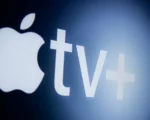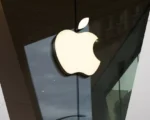Apple is set to present its case to a federal judge, urging the dismissal of a U.S. Department of Justice (DOJ) antitrust lawsuit that accuses the tech giant of monopolistic practices in the smartphone market. The hearing, scheduled for Wednesday in Newark, New Jersey, before U.S. District Judge Julien Neals, marks another significant moment in the ongoing legal battles surrounding Big Tech companies and their market dominance. The DOJ alleges that Apple has unlawfully restricted competition by creating a tightly controlled ecosystem that limits interoperability between iPhones, third-party apps, and competing devices.
At the heart of the DOJ’s argument is Apple’s ecosystem strategy, which prosecutors claim locks users into its platform while stifling competition. By tightly controlling app distribution through the App Store and restricting developers’ access to core iPhone technologies, Apple allegedly ensures that alternative app marketplaces and cross-platform interoperability remain limited. These practices, according to the DOJ, make it difficult for competitors to thrive, ultimately reducing consumer choice in the marketplace.
Apple, however, argues that its approach is not only lawful but essential to maintaining a secure and innovative platform for its users. The company contends that its restrictions on third-party developers are reasonable measures aimed at ensuring privacy, security, and the overall quality of user experiences. Apple has further asserted that forcing it to open its ecosystem to competitors would risk undermining these priorities and discourage innovation in a highly competitive market.
The case has broader implications for the technology industry and antitrust enforcement in the United States. If the court sides with the DOJ, it could lead to significant changes in how Apple and other tech giants operate their platforms, potentially forcing greater openness and interoperability. Conversely, a dismissal would bolster Apple’s defense of its business practices and signal that courts may be reluctant to intervene in the operational choices of dominant technology companies. The outcome of this hearing is expected to influence the trajectory of antitrust regulation in the tech sector for years to come.

















